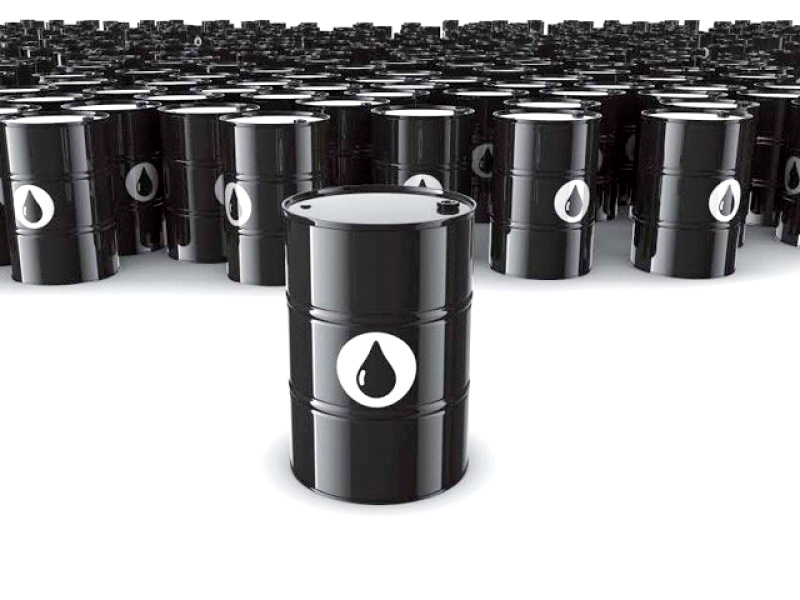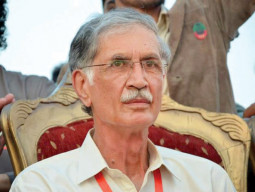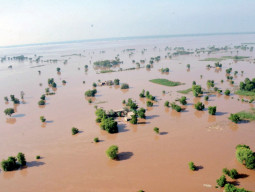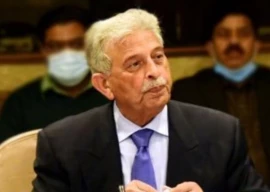
With floodwaters moving downstream to the country’s south, the provinces of Sindh and Punjab, where already large swathes have come under water, are facing the threat of fuel shortage as oil marketing companies (OMCs) have failed to build enough storage facilities.
“The fuel supply situation is likely to be the same as experienced in the 2010 floods and Punjab and Sindh could see supplies dwindle if roads connecting the two provinces are swept away by the floods,” an official said.
“We have directed the oil marketing companies to ensure the availability of oil supplies to consumers in this difficult situation,” said Azam Khan, Director General Oil, Ministry of Petroleum and Natural Resources.
However, he added he was not aware whether the OMCs had constructed enough oil storages to cope with shortages, if any.
DG oil is a regulator of the OMCs and must ensure that adequate storage facilities are put in place by the marketing companies to keep oil stocks in order to meet immediate needs in times of emergency.
Under the marketing licence, OMCs are required to establish storages to keep oil stocks for 20 days. During the floods of 2010, Punjab and Balochistan struggled to deal with acute fuel scarcity due to lack of oil reserves and consumers were forced to pay as high as Rs200 for a litre of petrol.
Following the 2010 deluge, the National Assembly Standing Committee on Petroleum and Natural Resources directed then DG oil to make efforts and press the OMCs to build storages for keeping fuel stocks for 20 days as per the licence requirements.
“Since 2010, no major storages have been built, which is a violation of the OMCs’ licensing conditions. In that year, the country had the capacity to store one million tons of petroleum products,” the official said.
“We have hardly added new storage capacity of 10,000 tons in the past four years and the situation has not changed. Now, once again, the country is grappling to control the floods and fuel shortage may arise this time too.”
The DG oil has failed to serve notices on the OMCs for not complying with the licensing requirements about keeping reserves.
According to officials, Pakistan State Oil has 74% of total storage facilities in the country. It had contributed a lot to ease the bottlenecks and ensure a smooth supply of oil in 2010 and the responsibility would again fall on the company in case of any disruption.
After these floods, the flow of petrol faced major constraints in Punjab, especially in Lahore, Gujranwala, Multan and Faisalabad, primarily due to destruction of road infrastructure and lack of storage facilities.
Even the Economic Coordination Committee (ECC) of the cabinet, at that time, took serious notice of the dearth of storage facilities and directed the Ministry of Petroleum to take steps to restore fuel supplies.
Published in The Express Tribune, September 13th, 2014.
Like Business on Facebook, follow @TribuneBiz on Twitter to stay informed and join in the conversation.

































1714024018-0/ModiLara-(1)1714024018-0-270x192.webp)









COMMENTS
Comments are moderated and generally will be posted if they are on-topic and not abusive.
For more information, please see our Comments FAQ